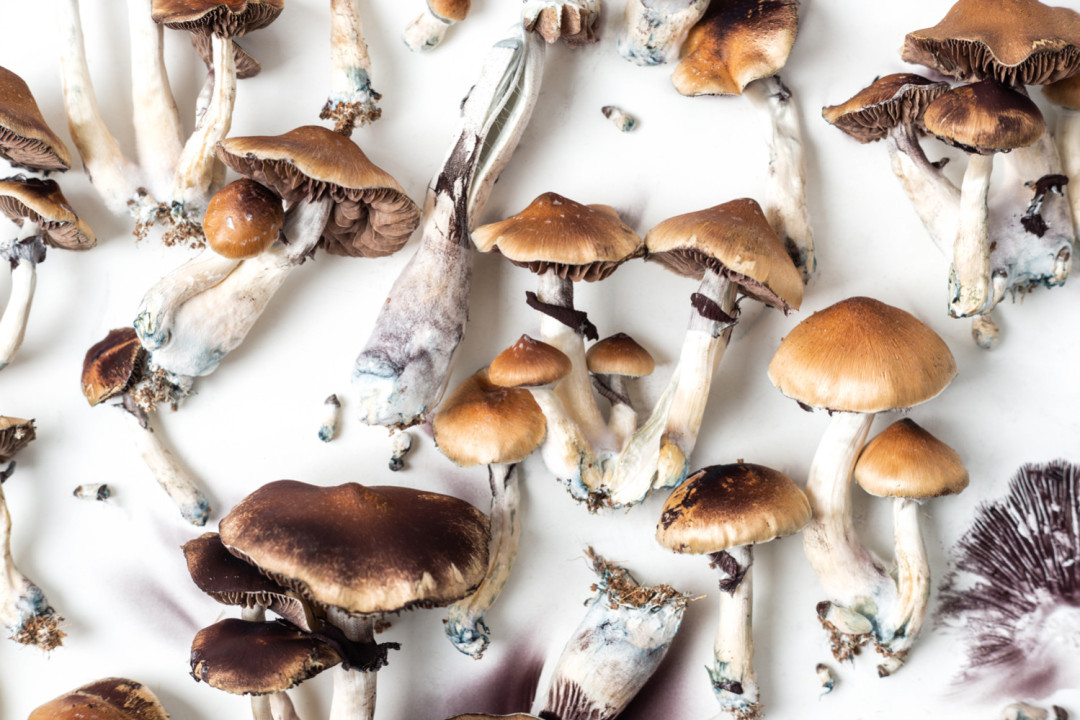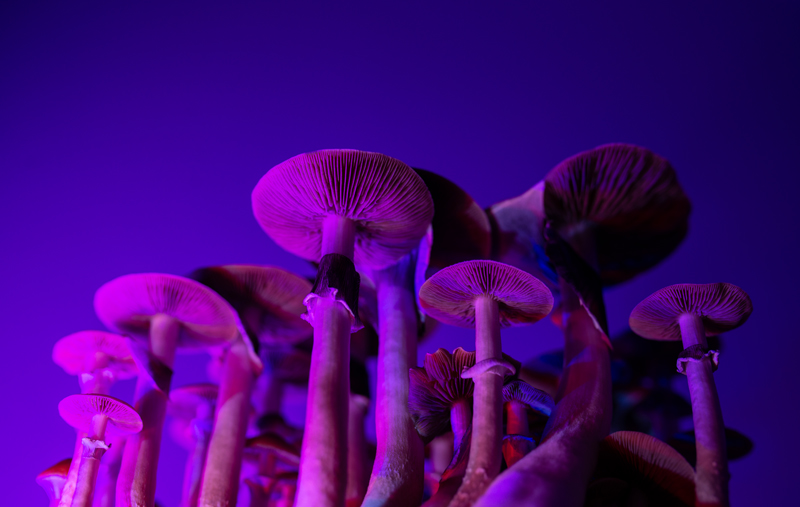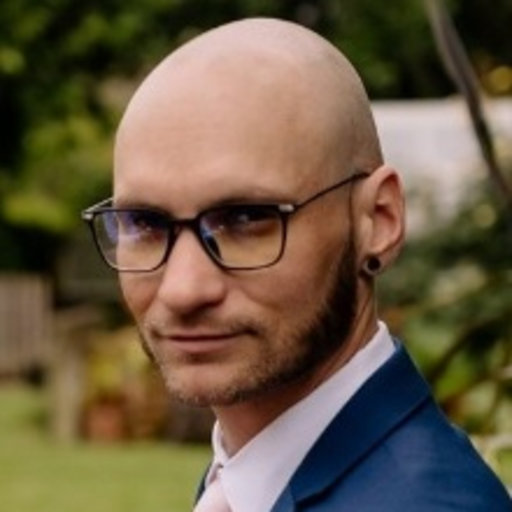A Psychedelic Renaissance? 'Blue Honey' and what's next for psilocybin in Aotearoa

"When nothing else seemed like it could assist me, [psilocybin] has," Anonymous, Blue Honey.
Magic mushrooms, also known as shrooms or mushies, are fungi containing the naturally occurring psychedelic compound, psilocybin. In pop culture, shrooms are typically portrayed as a drug people munch down to embark on cartoony psychedelic trips bursting with vibrant colours, crazy hallucinations, and feelings of connectedness with nature. However, around the world there is a growing movement to explore the drug’s therapeutic potential.
In New Zealand, psilocybin is a Class A controlled substance, the possession of which may land you with up to three months in jail. Recently, Australia changed its federal law meaning from July, some psychiatrists will be able prescribe psilocybin for treatment-resistant depression. In Aotearoa, scientists, iwi, as well as hobbyists and amateurs are busy researching what psilocybin’s potential could be. So, what’s next for psilocybin here?
In 2022, Wellington-based siblings Zach and Michaela Cotogni released their book Blue Honey: Personal Experiences using Psilocybin for Mental Health in Aotearoa.
Compiled following a year and a half of research and interviews, the book explores the therapeutic uses of psilocybin through 21 deeply personal stories, including the authors’ own. Individuals candidly share their journeys, detailing how psilocybin has helped them address mental health challenges, addictions, and chronic pain.
Blue Honey was endorsed by the renowned addiction expert and author, Dr. Gabor Maté, and since being released, Zach and Michaela have been interviewed by multiple national media outlets and appeared in Patrick Gower’s On All The Drugs documentary.

Inspired by their own experiences with psilocybin's "healing and transformative effects," Zach and Michaela wrote the book to share knowledge, provide a non-judgmental space for similar stories, and challenge negative perceptions of psilocybin as dangerous. They use the abbreviation 'MCP,' short for mushrooms containing psilocybin, to counter what they see as stigmatising associations with terms like 'magic mushrooms.'
Although public opinion on drug prohibition has softened recently, judgment surrounding MCP and other psychedelics persist. “[Some older people] have got that mentality: ‘If you take shrooms, you’re going to think you’re a bird and jump out of a building’,” Zach says. He believes that needs to change or MCP will always be perceived as a dangerous drug and not a medicine.
What New Zealanders featured in Blue Honey say about the benefits of using MCP
- “MCP kind of gives you the ability to step outside your brain and more objectively assess what’s going on in there… Psilocybin trips have enabled me to identify, assess and then resolve a lot of these negative pathways that formed in my earlier life,” - Anonymous.
- “One dose acted as a reset for my brain, allowed me to re-evaluate situations in my life and manage them without the cloud of anxiety,” – Matthew, 26.
- “MCP saved my life. They took me to the core of my problems and helped give me the strength and patience to understand and work through the jumbled space that was my head,” – Aidan, 20.
The science on psilocybin – PTSD and treatment resistant depression
In the 1960s and 70s, a thriving community of psychiatrists and researchers were examining the therapeutic benefits of psychedelics in the United States. During this era, many Americans, particularly the young, experimented with psychedelics. At that time, high profile advocate of psychedelics, psychologist Timothy Leary, popularised the phrase: "Turn on, tune in, drop out," which came to be a mantra for the hippie movement. Many figures in the US government saw the counterculture associated with psychedelic drugs as a threat to the establishment. In 1971, US President Richard Nixon declared drugs "public enemy number one." This declaration ushered in an era of prohibition, as governments across the globe made many psychedelics illegal, and significantly limited research into them.
As perceptions of psychedelics have gradually liberalised over the last decade or so, research into psilocybin and other compounds has, once again, sprouted up at universities around the world. This was also driven by the shortcomings of currently approved therapies where there are still people who don’t get optimal outcomes for their mental health conditions.
In New Zealand, there are currently several research projects exploring psilocybin and other psychedelics’ effects on illness, creativity and more. At Auckland University, one study is focussed on people who microdose and another is examining LSD’s impact on creativity. Otago University is also conducting several clinical ketamine trials for treatment of anxiety, alcohol use disorder and obsessive compulsive disorder.
Professor Marie Crowe from Otago University's Department of Psychological Medicine is part of a team studying the effectiveness of combining psychotherapy and psilocybin to treat treatment-resistant depression (TRD). TRD is defined as depression unresponsive to conventional treatments, such as currently available antidepressants.
Professor Crowe states that, typically, depressed individuals are stuck in rigid thinking patterns. However, after dosing with psilocybin, people experience "much more connectivity [and] global integration across the brain."
Research from Johns Hopkins University shows that most patients with severe depression experienced a reduction of symptoms that lasted up to a year after receiving psilocybin-assisted therapy.
Otago University's trials, influenced by Imperial College London research[JK1] , also incorporate a psychotherapy component to examine its potential to amplify psilocybin's effects. Participants will take two doses of psilocybin a week apart, with the second dose doubling in strength, under lab conditions, including a facilitator, and a comfortable setting with music.
Current evidence suggests that many TRD sufferers who take these doses will experience mood improvement and symptom reduction for at least nine months, with the potential for further research to show longer term effects.
Professor Crowe highlights the value in conducting psilocybin trials in Aotearoa. "There’s evidence that it’s effective and we don’t have good treatments. Depression and TRD are such a huge problem that it’s worth trialling to see if we can get some treatment response."

University of Waikato neuroscientist, Dr Mitchell Head - University of Waikato neuroscientist, Dr Mitchell Head
Iwi investigates using indigenous psilocybe fungus species to treat meth addiction
That’s not the only psilocybin research currently occurring in Aotearoa. In a unique community-led initiative, members of the Rangiwaho marae in Tairawhiti Gisborne are exploring the use of the indigenous psilocybe weraroa mushroom to treat methamphetamine addiction. This project is informed by a Te Ao Māori framework and will use the whole mushroom, rather than just the extracted psilocybin component. Dr. Mitchell Head, a neuroscientist at Waikato University, is involved in the project and highlights that while the mushroom is not a magic cure for addiction, it can be a catalyst for reshaping the brain.
An initial trial involving 10 to 15 healthy volunteers will be conducted to refine the process and gather feedback on the cultural protocols. The team has so far received support from the Health Research Council of New Zealand and ESR, a Crown institute. Read more about the trial here.
Blue Honey - Personal experiences using Psilocybin for mental health authors, - Authors of 'Blue Honey - Personal experiences using Psilocybin for mental health', siblings Michaela and Zach Cotogni
Psilocybin’s impact: stories from "Blue Honey"
As the scientific community studies psilocybin's therapeutic uses, accounts from Zach, Michaela and others provide insight into the personal experiences of those who have turned to psilocybin for relief from addiction and mental health issues.
A self-described former "meth-head," poly-addict, and alcoholic, Zach reveals that before he got well, there were days when he would wake up knowing his body wouldn't function if he didn't have his daily hit of opioids or meth. He credits psilocybin with turning his life around and says that without it, he would have lost everything. “I’m an outstanding citizen these days. I pay my taxes, I pay my mortgage, I’m a good family man… and all of this is entirely possible because of the MCP.”
His sister Michaela, who has long struggled with severe mental health issues and was taking multiple prescription medications, including antipsychotics, says she has also experienced profound positive effects from using psilocybin.
She says the medications she was taking were having serious impacts on her, often leaving her unresponsive and drooling. A moment of crisis prompted Zach to encourage her to try psilocybin.
Michaela says she used to believe that living was like being in a cage and the that the only escape would be through “the release of death.” Since starting using psilocybin, she says she has a newfound understanding of what it's like to live and heal outside of the mental illness that had trapped her and says she is “so much better.”
Despite the positive impact that psilocybin has had on their lives, Zach says that due to its illicit status, they could be facing prison time for using the substance. Recent data shows that over the past five years, 90 people have been charged in New Zealand for simple possession of psilocybin mushrooms.
In Blue Honey, people describe using psilocybin to treat depression, PTSD, addiction, and anxiety. Some microdose regularly, while others use smaller or larger doses occasionally. Many report overcoming the need for daily medications and breaking addictions to methamphetamine and alcohol. One woman even credits MCP for saving her life. A shared theme is MCP's ability to grant personal insights and fresh perspectives, prompting positive life changes.
Public response to Blue Honey
Zach says the reception to their book has been overwhelmingly positive. "We've received emails from, dare I say, ‘boomers,’ and they've been like, 'I've read your book and I'm amazed about this and I'm going to look further into it.”
He acknowledges that some people may view the stories in the book as “anecdotal at best.” That thought led Michaela to provide access to her entire medical history in the book, accessible via a QR code.
“That’s why the book has had its success. You can argue everyone else’s story in there, but you can’t argue hers. It’s all written in black and white with her medical records,” Zach says.
Michaela, who now lives in Canada, described feedback they had received from the public as “profound.” Some shared stories of hope, while others sought help and guidance.
She says she had heard from people who were in “excruciating pain” and were desperately seeking relief.
Due to current laws, regardless of what help people seek from them, Michaela’s and Zach’s response is always the same: “We can’t advocate, or suggest you medicate or tell you where you can locate psilocybin. We can’t put you, ourselves or our platform and mission at risk.”[JK1]
Michaela says it was “absolutely crushing” to have created a space for people to come forward but to be unable to direct them towards psilocybin because the law’s lack of recognition for treatment.
“It’s right at our fingertips, and it’s just out of reach, and in the interim - we’re slipping through the cracks,” she says.
Being safe when using psilocybin
Psychedelic mushrooms continue to be illegal. If you do decide to use them, read our guide on how to stay safer on The Level. If you do not know the exact species of mushroom you are taking, don’t eat it.
Some mushrooms that have the potential to kill you look remarkably like harmless varieties. Online groups, such as The Shroomery, can help you identify what caps you’re in possession of.
Zach says the most important two words anyone should know before taking psilocybin are: “set and setting.” Consider your intentions, comfort, safety, and surroundings and, if possible, have a trip sitter. Some questions to ponder: Are you safe? Is your phone turned off? Is anyone going to knock on your door and come in? Are the kids out the house?
He also recommends not combining MCP with any amount of alcohol. Zach says some people taking MCP can encounter difficult or challenging experience which will most likely be amplified if mixed with alcohol or other drugs.
The book deliberately steers away from the trip aspect of MCP. None of the people featured in the book discussed their MCP use as recreational.
“There are so many people out there who do that. You want to go recreationally with these? Fine. Whatever. That’s you. You do you. But we’re coming from a mental health and healing angle only,” Zach says.
The future of psychedelic regulation in Aotearoa
With Australia opening the door to therapeutic use of psychedelics and many other countries shifting towards decriminalisation or legal regulation of drugs, where might Aotearoa head?
Executive Director of the New Zealand Drug Foundation, Sarah Helm, says that the current prohibition approach is causing harm and that criminalising people for using substances does not stop them from using them
“With psilocybin, one of the greatest harms is actually from taking the wrong kind of mushroom, which can result in poisoning. Our drug laws exacerbate rather than address this risk.”
“We are aware that people self-medicate using psilocybin, particularly as they see the emerging research but are unable to access it in a therapeutic setting.”
She cites Colorado, USA recently joining Oregon in decriminalising the use of psilocybin and other psychedelics and legalising clinical psilocybin treatment.
“We should be looking abroad for regulatory examples to consider for safe and best practice regulatory examples.”
Class A substances are supposed to only include drugs that pose a risk of serious harm to the user or public outside of a medical setting, but there’s no evidence that psilocybin fits those criteria.
Instead of criminalising people, more money could be invested into education about MCP. Zach says that at present, “there are people who go out into the bush and look for psychoactive mushrooms. “Unfortunately, there are mushrooms that will straight up kill them that are entirely legal to pick – go figure.”
Polling conducted by the Drug Foundation in 2022 showed that 68% of New Zealanders supported replacing the country’s 1975 Misuse of Drugs Act with a health-based approach.
As more countries legalise and regulate psilocybin, and public interest in its therapeutic applications receives increasing attention, Helm says we need to have a conversation here in Aotearoa about how to ensure safe access to psychedelic therapies in a safe and controlled manner, while also acknowledging its cultural significance.
Recent news

Beyond the bottle: Paddy, Guyon, and Lotta on life after alcohol
Well-known NZers share what it's like to live without alcohol in a culture that celebrates it at every turn

Funding boost and significant shift needed for health-based approach to drugs
A new paper sets out the Drug Foundation's vision for a health-based approach to drug harm

Expert Pharmac committee recommends funding for overdose reversal nasal spray
The expert committee has said funding for naloxone in the community should be a high priority

